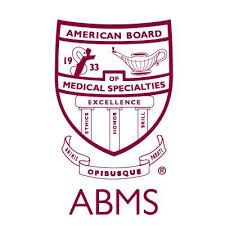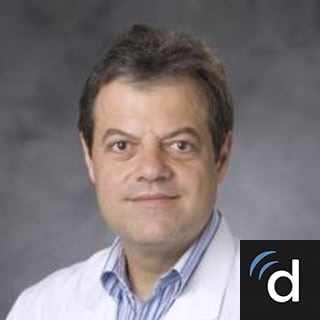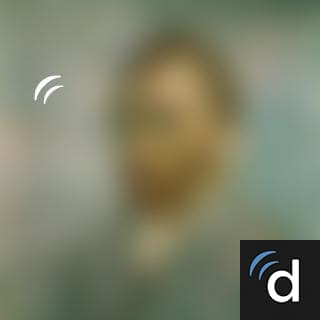
Join to View Full Profile
40 Medicine CircleDurham, NC 27710
Phone+1 919-660-4195
Fax+1 919-613-3606
Dr. Feng is on Doximity
As a Doximity member you'll join over two million verified healthcare professionals in a private, secure network.
- Gain access to free telehealth tools, such as our “call shielding” and one-way patient texting.
- Connect with colleagues in the same hospital or clinic.
- Read the latest clinical news, personalized to your specialty.
Summary
- Dr. Feng attended Xiangya Medical School, followed by graduate school at the University of Alabama at Birmingham. He had an opportunity working with Dr. Edward Taub on Constraint-Induced Movement Therapy for stroke recovery. He worked 4 years as a professional statistician in Eli Lilly & Company before he started neurology residency at Medical University of South Carolina (MUSC) and stroke fellowship at Harvard Medical School/Beth Israel Deaconess Medical Center, then back to MUSC started as an assistant professor in 2011.
Currently, Dr. Feng is the Chief of Stroke & Vascular Division at Duke University Medical Center. He is double board-certified in Neurology and Vascular Neurology. He is one of few pioneering stroke neurologists who provide tele-stroke care and expand care to rural areas around clock. His clinical practice mainly focuses on stroke recovery & Rehabilitation, and post-stroke spasticity management. He is a fellow of the American Neurological Association and American Stroke Association. He is on the list of “American Top Physicians in Neurology.
His research focuses on: 1) stroke outcomes research; 2) development an imaging biomarker for post-stroke motor outcomes prediction, and 3) use transcranial direct current as a tool to enhance post-stroke motor recovery in stroke patients. The sources of funding are from National Institute of Health, American Heart Association as well as industry. He is the recipient of FIRST stroke rehabilitation award by International Stroke Conference and Franz Gertstenbrand Award from the World Federation of Neurorehabilitation. He is currently leading an NIH funded multi-center phase II dosing selection study for transcranial direct current stimulation for post-stroke motor recovery.
Education & Training
 Beth Israel Deaconess Medical Center/Harvard Medical SchoolFellowship, Vascular Neurology, 2010 - 2011
Beth Israel Deaconess Medical Center/Harvard Medical SchoolFellowship, Vascular Neurology, 2010 - 2011 Medical University of South CarolinaResidency, Neurology, 2006 - 2010
Medical University of South CarolinaResidency, Neurology, 2006 - 2010 University of Alabama at BirminghamMS, Biostatistics, Master Degree in Science, 2000 - 2002
University of Alabama at BirminghamMS, Biostatistics, Master Degree in Science, 2000 - 2002 University of Alabama HospitalPost-Doctoral Fellowship, 1999 - 2000
University of Alabama HospitalPost-Doctoral Fellowship, 1999 - 2000 Hunan Medical UniversityClass of 1996, MD
Hunan Medical UniversityClass of 1996, MD
Certifications & Licensure
 SC State Medical License 2010 - 2027
SC State Medical License 2010 - 2027 NC State Medical License 2013 - 2026
NC State Medical License 2013 - 2026 VA State Medical License 2019 - 2026
VA State Medical License 2019 - 2026 American Board of Psychiatry and Neurology Neurology
American Board of Psychiatry and Neurology Neurology American Board of Psychiatry and Neurology Vascular Neurology
American Board of Psychiatry and Neurology Vascular Neurology
Awards, Honors, & Recognition
- Scientific Investigation Award The Society of American Chinese Physicians, 2017
- Franz Gertstenbrand Award World Federation of Neuororehabilitation, 2016
- Arthur Guyton New Investigator Award Consortium for Southeastern Hypertension Control, 2016
- Join now to see all
Publications & Presentations
PubMed
- Rethinking neuromodulation in stroke: lessons from TRANSPORT2 - Authors' reply.Wuwei Feng, Christy Cassarly, George F Wittenberg, Gottfried Schlaug
The Lancet. Neurology. 2025-08-01 - 1 citationsCerebrovascular Management Considerations in Patients on AATs.Dylan Ryan, Wuwei Feng, Andy J Liu
Journal of Clinical Medicine. 2025-05-14 - Ischemic Stroke in Immune-Mediated Thrombotic Thrombocytopenia Purpura: Diagnostic and Management Challenges.Allison O Taylor, Alexandre Soares Ferreira Junior, Braydon L Dymm, Wuwei Feng, Nada El Husseini
Stroke. 2025-05-01
Press Mentions
 Duke Neurology Research Round up, July 2019August 2nd, 2019
Duke Neurology Research Round up, July 2019August 2nd, 2019 Faculty Spotlight: Pratik Chhatbar, MD, PhDJune 4th, 2019
Faculty Spotlight: Pratik Chhatbar, MD, PhDJune 4th, 2019 Noninvasive Brain Stimulation May Improve Swallowing After StrokeMarch 25th, 2011
Noninvasive Brain Stimulation May Improve Swallowing After StrokeMarch 25th, 2011
Grant Support
- Transcranial Electrical Stimulation in Stroke EaRly After onset Clinical Trial-2 (TESSERACT 2)UNIVERSITY OF CALIFORNIA LOS ANGELES2024–2029
- Transcranial Electrical Stimulation in Stroke EaRly After onset Clinical Trial-2 (TESSERACT 2)UNIVERSITY OF CALIFORNIA LOS ANGELES2024–2029
- Combining rTMS & aerobic exercise to treat depression and improve post-stroke walking (RESTORATION)MEDICAL UNIVERSITY OF SOUTH CAROLINA2024–2029
- Combining rTMS & aerobic exercise to treat depression and improve post-stroke walking (RESTORATION)MEDICAL UNIVERSITY OF SOUTH CAROLINA2024–2029
- Transcranial Electrical Stimulation in Stroke EaRly After onset Clinical Trial-2 (TESSERACT 2)UNIVERSITY OF CALIFORNIA LOS ANGELES2024–2029
- Combining rTMS & aerobic exercise to treat depression and improve post-stroke walking (RESTORATION)MEDICAL UNIVERSITY OF SOUTH CAROLINA2024–2029
- Combining rTMS & aerobic exercise to treat depression and improve post-stroke walking (RESTORATION)MEDICAL UNIVERSITY OF SOUTH CAROLINA2024–2029
- Duke-University of North Carolina (UNC) Eastern North Carolina and Southern Virginia RegIonal Stroke trIal cONsortium (ENVISION)DUKE UNIVERSITY2023–2028
- Duke-University of North Carolina (UNC) Eastern North Carolina and Southern Virginia RegIonal Stroke trIal cONsortium (ENVISION)DUKE UNIVERSITY2023–2028
- Duke-University of North Carolina (UNC) Eastern North Carolina and Southern Virginia RegIonal Stroke trIal cONsortium (ENVISION)DUKE UNIVERSITY2023–2028
- Supplement to TRANScranial direct current stimulation for POst-stroke motor Recover - a phase II sTudy (TRANSPORT 2)DUKE UNIVERSITY2019–2025
- TRANScranial direct current stimulation for POst-stroke motor Recover - a phase II sTudy (TRANSPORT 2)DUKE UNIVERSITY2019–2025
- ASPIRE: Adult SPasticity International REgistry on BOTOX® TreatmentAllergan InC.2014–Present
- Prediction and imaging biomarker for post-stroke Motor RecoveryAmerican Heart Association2014–Present
- Optimizing Transcranial Direct Current Stimulation Current and Electrode Montage for Stroke PatientsNIH2014–Present
- TRANScranial direct current stimulation for POst-stroke motor Recovery – a phase II sTudy (TRANSPORT 2)NIH2018–2022
Committees
- “At Large” member for the presidium, World Federation of Neurorehabilitation 2017 - Present
- Membership committee member, American Society of Neurorehabilitation 2014 - Present
- Rehabilitation and Recovery Committee Member, American Heart Association 2013 - Present
- International Stroke Conference Committee Member, International stroke conference 2012 - Present
Professional Memberships
- Member
- Fellow
- American Neurological AssociationFellow
- American Society of NeurorehabilitationMember
Other Languages
- Chinese (Mandarin)
Viewing the full profile is available to verified healthcare professionals only.
Find your profile and take control of your online presence:









